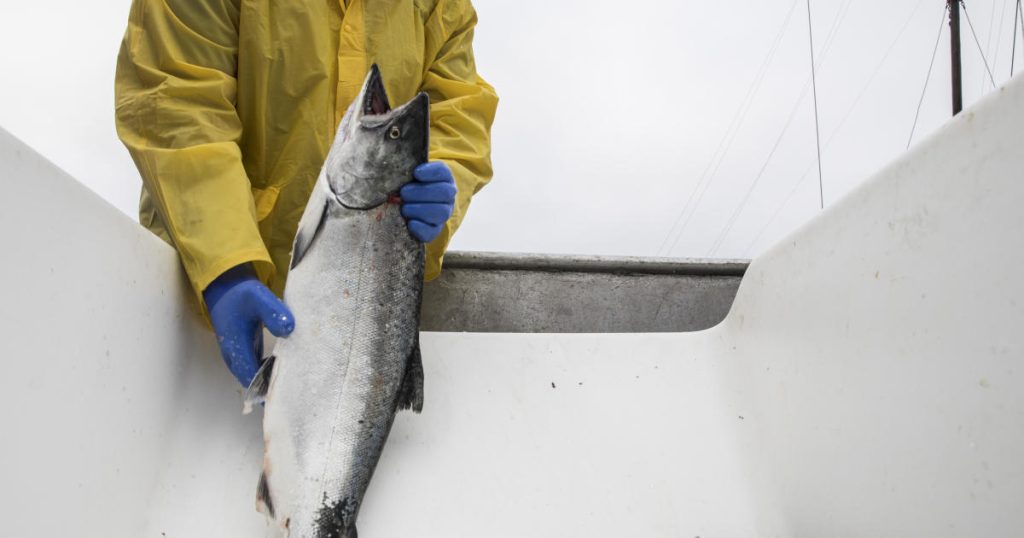The federal council overseeing fishing along the West Coast has recommended canceling the California ocean salmon season for the second year in a row. This decision is based on continued low water levels and high temperatures in rivers where salmon spawn, leading to historically low population numbers. The Sacramento River watershed, which provides a significant proportion of salmon on the West Coast, saw only 134,000 adult fall-run Chinook return to spawn in 2023, compared to the 1 to 2 million fish in previous years.
The economic impact of the decision is devastating for communities that rely on revenue from commercial and recreational fishing. Estimates suggest losses from last year’s cancellation in California range from $45 million to $65 million, with only $20 million in disaster aid allocated by the federal government. Industry groups are concerned that the second consecutive cancellation will further reduce the Pacific Coast fishing fleet, which has already decreased from nearly 5,000 vessels in the early 1980s to 464 vessels in 2022.
Sportfishing guides have reported a significant decline in business following last year’s closure, with over 80% of their yearly income disappearing. There are widespread fears that this year’s closure will have a similar impact, affecting both commercial and recreational ocean fishing. The council has even recommended that the California Fish and Game Commission consider prohibiting river fishing as well, indicating the severity of the situation. The salmon fishing season usually runs from May through October, and the council’s recommendation awaits approval from the National Marine Fisheries Service by mid-May.
The cancellation of the California ocean salmon season for the second year in a row is a significant blow to the state’s fishing industry, which is already struggling from last year’s closure. The continued low water levels and high temperatures in rivers where salmon spawn have resulted in historically low population numbers for the iconic species. This has led to concerns about the long-term impact on the fishing fleet and the communities that rely on revenue from fishing activities.
The economic consequences of the decision are substantial, with estimates suggesting losses of up to $65 million from last year’s cancellation. Despite the federal government allocating $20 million in disaster aid, many salmon fishers have yet to receive any of that money. The industry is worried that the second consecutive cancellation will further reduce the number of boats in the Pacific Coast fishing fleet, which has already seen a significant decline over the years. Sportfishing guides have experienced a significant drop in business, with fears of a repeat for this year’s season, which typically runs from May to October.
The impact of the closure extends beyond commercial fishing, with concerns about the effects on recreational fishing and the wider ecosystem. The recommendation to potentially prohibit river fishing as well highlights the severity of the situation facing salmon populations and the fishing industry along the West Coast. As the council’s recommendation awaits approval from the National Marine Fisheries Service, stakeholders are left grappling with the uncertain future of the California ocean salmon season and the wider implications for the fishing industry and the communities that depend on it.















